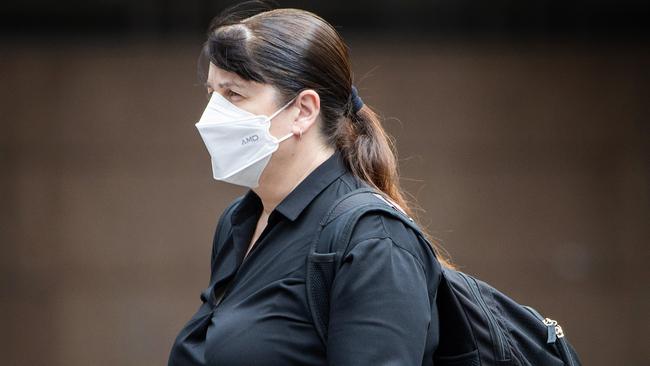Accused stalkers would be banned from cross-examining victims under proposed overhaul
Accused stalkers would be banned from cross-examining their victims in court under a new push, after a stalker teacher last month grilled a boy for 10 hours.

Police & Courts
Don't miss out on the headlines from Police & Courts. Followed categories will be added to My News.
Alleged stalkers would be banned from cross-examining their victims under a proposed legal overhaul, after a student was forced to endure 10 hours of questioning from his predator teacher.
A Victorian Law Reform Commission report called for accused stalkers who represent themselves in court to be banned from cross-examining victims, in line with laws around family violence and sexual assault.
The Herald Sun can reveal that stalker teacher Fiona Austin — jailed last month — had lawful access to the boy that she tormented for years in a relentless stalking campaign, and his mother, after she represented herself at trial.
County Court Judge Michael O’Connell found Austin’s actions during the three-week trial were designed to “cause as much distress and harm as you could to your victims”.
The VLRC report into stalking found accused stalkers could use court proceedings “to perpetuate the stalking behaviour, and extend the trauma and distress for the victim survivor”.

In sentencing Austin last month, Judge O’Connell said her cross-examination of her former student – who had taken out an intervention order against her – for 10 hours and 15 minutes and his mother, also a victim, for four hours and 40 minutes showed why the practice must be banned.
Judge O’Connell said Austin, 53, was “quite content to cause as much distress and harm as you could to your victims”, who she “adamantly opposed” giving evidence by videolink.
In one instance, Austin questioned the mother over the death of her husband in what the judge found was “gratuitous, hurtful and immediately distressing to the witness”.
“That incident exemplified the fraught nature of the process,” the judge said.
Austin was found guilty of four charges, including using a carriage service to harass and stalking the boy and his mother between 2014 and 2016.
The student had made a formal complaint about his economics and accounting teacher’s unwanted attention, which became “more intense” after she read his personal journal.
Melbourne Senior Secondary — led by fraud principal Neil Lennie and since shut down by the government — fired Austin in October 2014.
A jury found over the next two years she phoned, emailed and texted her student more than 4000 times, and his mother almost 1000 times, publishing websites and videos attacking the pair and labelling him a “compulsive liar” while urging him to “talk to me, make this right.”

“I would love to see you smile at me again. I would love to feel your presence again. I wish you were here,” she wrote to him in 2016.
In statements to the court, mother and son said Austin’s crimes dominated their lives for eight years and caused “constant and unrelenting” emotional damage.
Judge O’Connell said accused stalkers had the right to test the evidence but “that should not be done in such a way that enables the accused to cause further harm”.
The Criminal Procedure Act allows family violence or sexual assault victims to become protected witnesses in court, stopping self-represented accused from personally cross-examining them.
But the law does not extend to stalking victims.
The VLRC stalking report — triggered by the alleged murder of Celeste Manno — made 45 recommendations, including for school education programs, emergency victim funding for advocates and forensic sweeps, and an overhaul of how courts prioritise cases.
Commission chair and former federal court judge Tony North KC said the Austin case “demonstrates how important this reform is” and that cross-examination by accused stalkers was “extremely harmful to victims, very distressing and very traumatic”.
Mr North said the stalking report means the community now knows “what a pervasive problem it is and how important it is to improve the system”.
The Attorney-General’s office is considering the recommendations, tabled in parliament last month.



